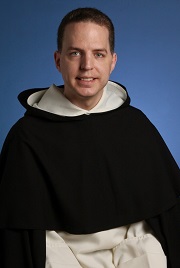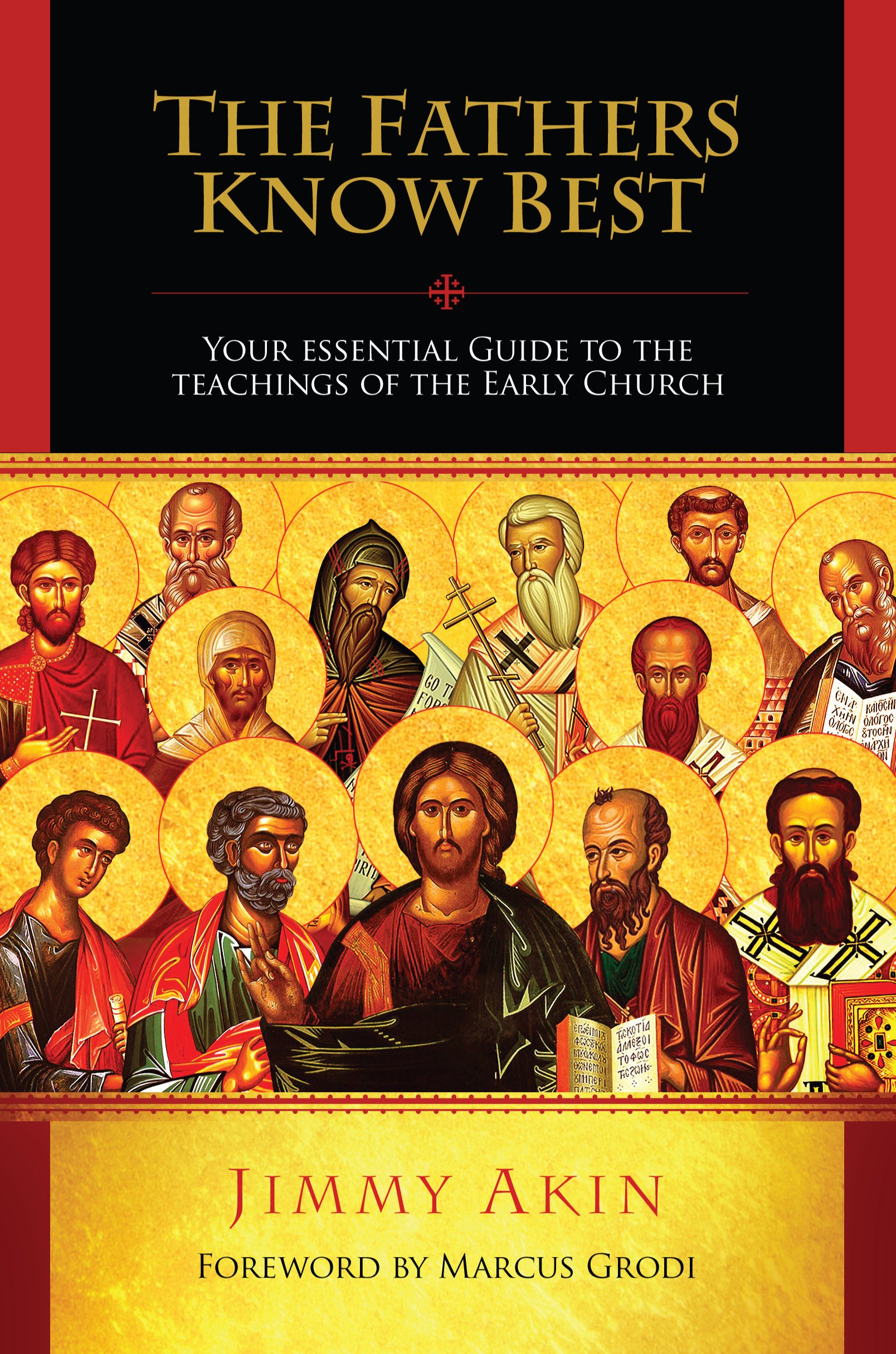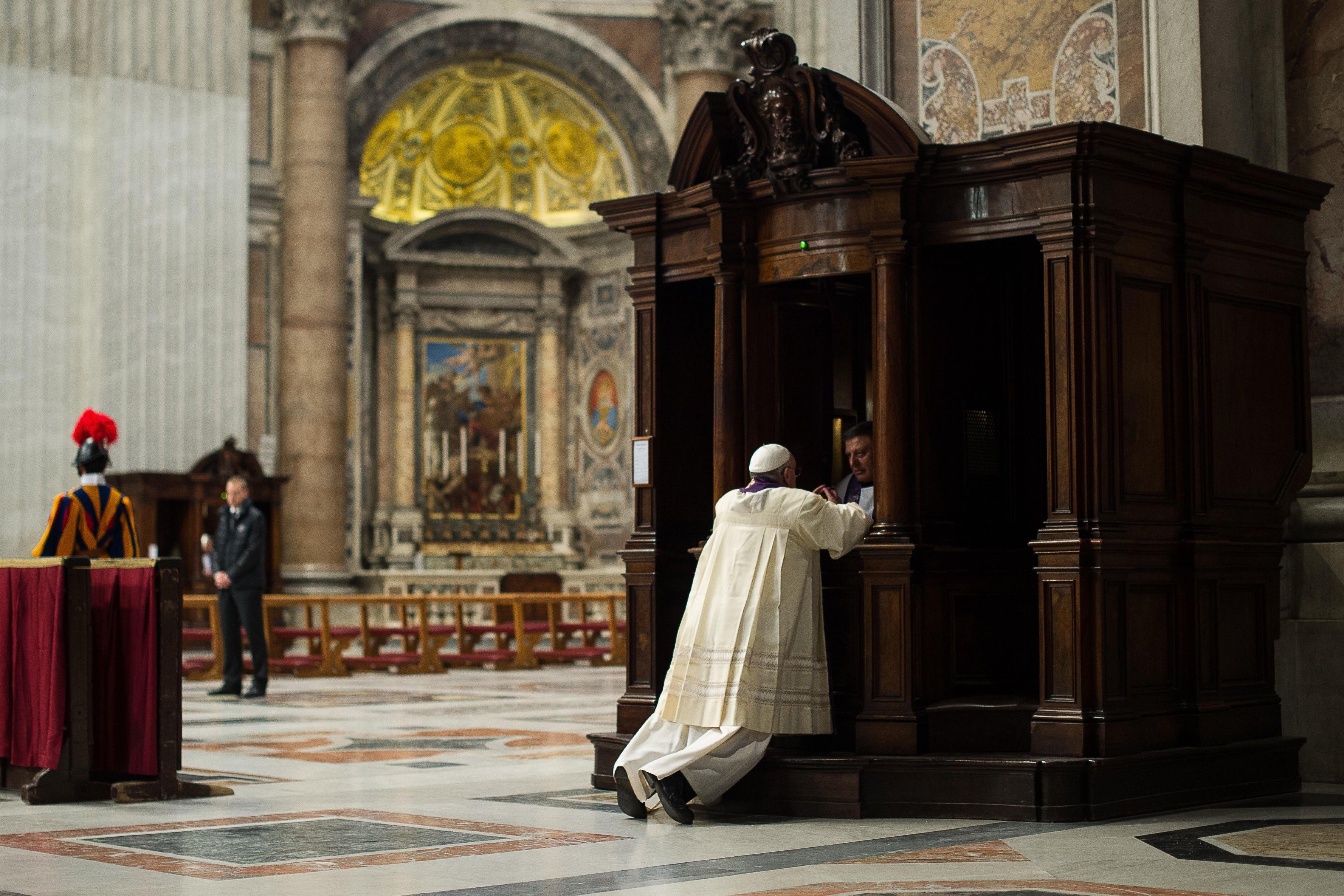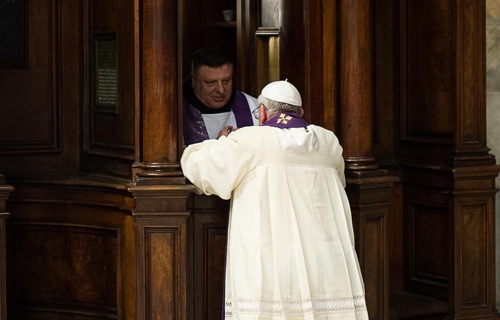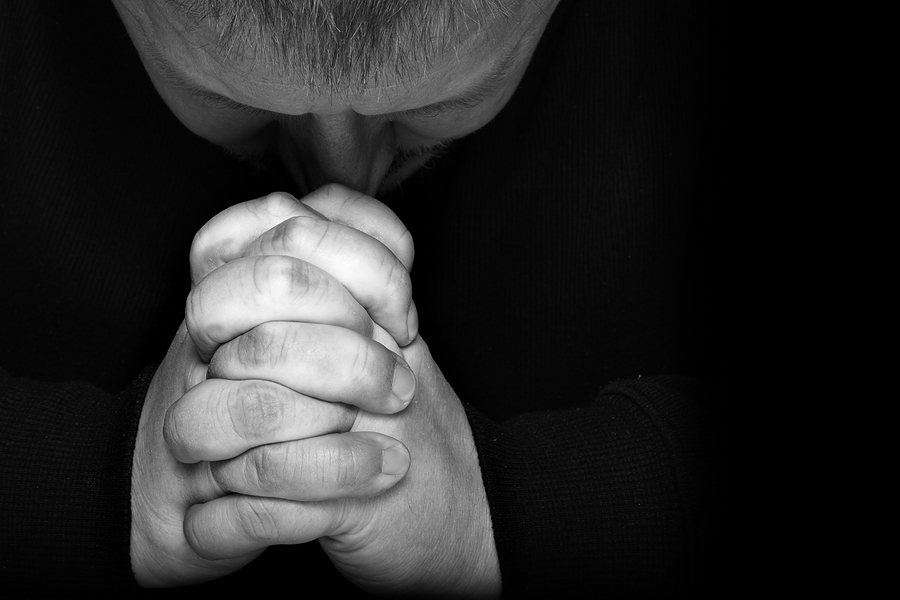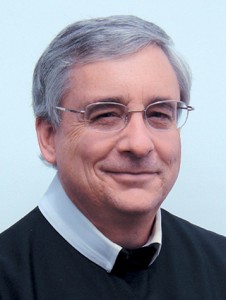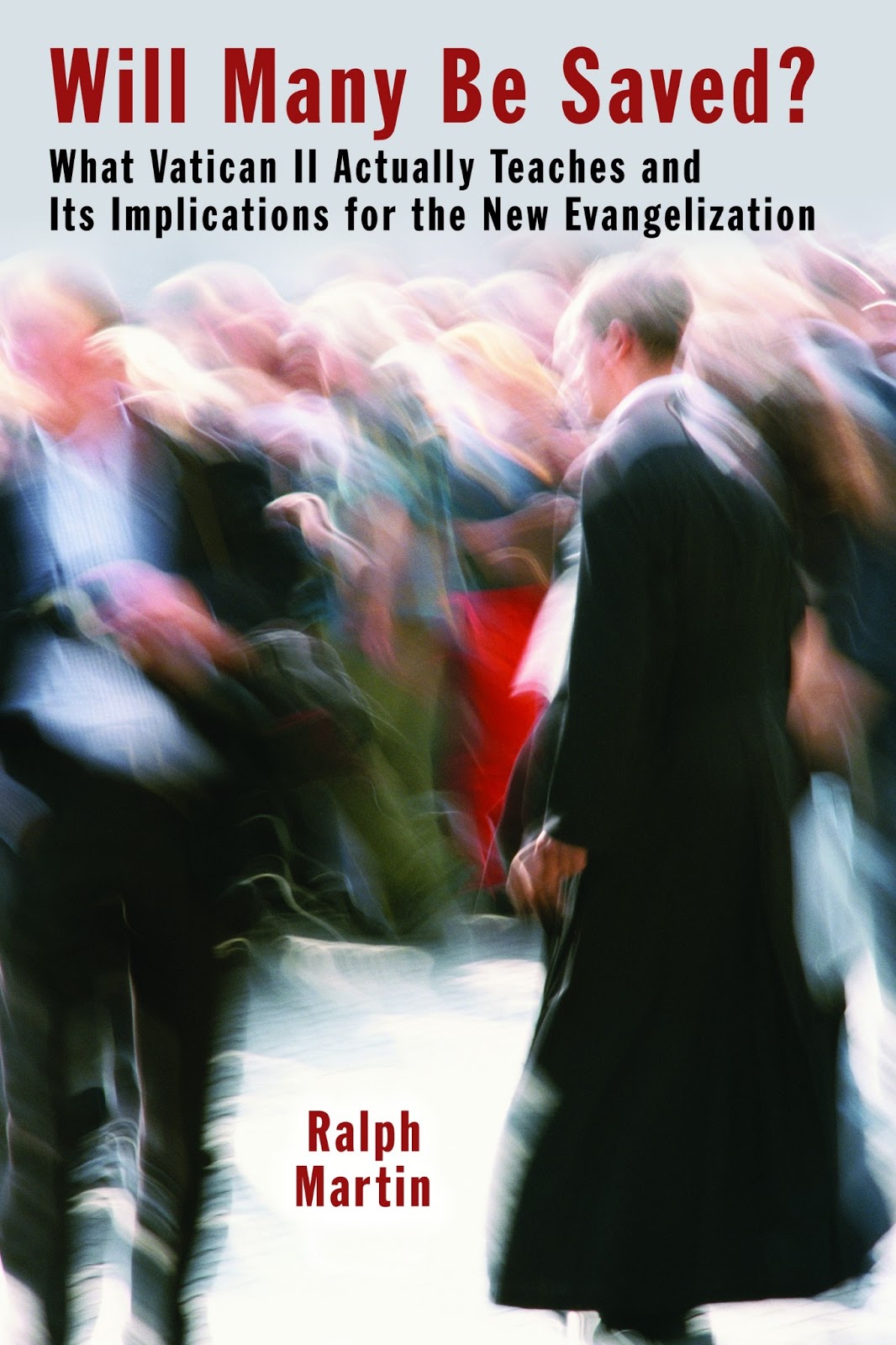Rev. Thomas Petri, OP
Vice President and Academic Dean
Instructor of Moral Theology and Pastoral Studies
Pontifical Faculty of the Immaculate Conception
Dominican House of Studies, Wash, DC
from Interfaith Voices, 2/12/15
Listen here:
Moderator:
“One of the oldest spiritual struggles experienced by serious Catholics is the struggle between following Church teaching and following one’s conscience when they’re in conflict. Earlier, we heard from Father Tony Flannery, an Irish priest who was recently silenced by the Vatican for openly questioning Church teachings on the origins of the priesthood, women’s ordination and homosexuality. The Irish hierarchy said he had broken his vow of obedience, but Father Flannery believed he had to follow a higher authority, his conscience.
For another view, we turned to another priest named Father Thomas Petri, OP. He’s an instructor in moral theology and pastoral studies at the Dominican House of Studies in Washington, D.C. When we presented him with Father Flannery’s dilemma, he had a very different answer.”
Father Thomas Petri:
“Well, to put it very succinctly, priests take a vow of obedience or make a promise of obedience because they’re public representatives of the Church. They’re public persons. So when a man is ordained, he can no longer claim to be a private person. He may still have elements of his life that the faithful don’t see, but he still is in some ways representing the Church publicly.
So the vow of obedience and the promise of obedience to say Church teachings or to what the Church believes and teaches, helps him to live that way and to authentically then witness to what the Church puts forth as the Gospel and teaching of Jesus Christ.”
Moderator:
“So if you were Tony Flannery and you disagreed on some of the things that he does, what would you do?”
Father Thomas Petri:
“Well, first of all, I wouldn’t broadcast it to begin with. I wouldn’t broadcast it. I would take it to prayer. I would take it to spiritual direction. I would take it to my superiors. I would want to study it. I know a very prominent, for example, sister who is now on the International Theological Commission who was once in favor of women’s ordination. She studied herself out of that position. She was, for the longest time, one of the few nuns in America who had a PhD in theology in the late 70s and early 80s, because her mind was open to looking this up and trying to figure out why the Church teaches what it does. That’s what I hope I would do if I ever were to come across this bridge.”
Moderator:
“And of course I don’t know who that nun is but I know an awful lot of people who work on that issue. I don’t know anybody that’s argued themselves out of it.”
Father Thomas Petri:
“Well, Sister Sarah Butler would be the one you’d want to look up.”
Moderator:
“Yes, okay. That’s a name that I’ve heard, I must admit. Now, as we mentioned in the introduction, there are many Catholics over many centuries who have come into conflict between this idea of obedience and the idea of conscience. The conscience tells them something other than what the Church teaching is. So how do they relate to each other in Catholic teaching? What’s the official word on that?”
Father Thomas Petri:
“Well, when we talk about conscience, so often it’s used as a substitute for personal opinion. It’s my personal opinion that this is true or that is true. So we have to mean something different about the word conscience than we do personal opinion, and the Church’s position, down through the century, has always been faithful living in conscience, that their conscience is formed by living the life of the faith, living life with Jesus Christ. Living life in worship of God day in and day out, Sunday after Sunday, going to Mass, preaching, studying the word, being docile to what the saints and the fathers have said, that this forms their conscience.
So that’s what we mean when we talk about conscience in a certain sense. When we talk about a priest’s obedience and his relationship to conscience, well, we’re talking about a priest who in good conscience made a public commitment to the Church and to be faithful to the Church. And certainly there can be times in a priest’s life when those do come into conflict in his own existential experience, his own living the life. Absolutely. But how do you handle that, that’s a different question.”
Moderator:
“And Father Tony Flannery did what – certainly he’s not the first, he went public –”
Father Thomas Petri: “Sure.”
Moderator: “– with some of the struggles that he was having with various teachings of the Church, but a Catholic I believe is supposed to have something called an informed conscience, what does that mean?”
Father Thomas Petri:
“Well, it means just those things I was talking about. To have an informed conscience is simply to not walk around blindly. Well, whatever I think is right that must be right. That’s not an informed conscience. It doesn’t mean not questioning, it doesn’t mean being a robot and just taking everything in blindly and without question, but it does mean giving the Church the benefit of the doubt and allowing it to sink in so that it informs my life.”
Moderator: “So Church teaching and someone’s conscience might not always coincide or else conscience would be totally redundant, wouldn’t it?”
Father Thomas Petri: “Well, that’s right. Also, a person’s conscience cannot simply be the blind guide either because culture –”
Moderator: “No, no, I’m talking about an informed conscience, somebody who knows what the Church teaches, has reflected on it, maybe prayed about it, all that sort of stuff. I know plenty of people who have done that and still have conflicts.”
Father Thomas Petri:
“Well, still have conflicts. So the question would be when you have a conflict, how are you going about living your life within that conflict? Right. And the Church’s traditional teaching has always been that Catholics who have difficulty in conscience should be docile to the wisdom of the centuries and the wisdom of the Church, of the wisdom of the Church, and then to try to work through their difficulties with their pastors, with the Saints, with the (writings of the historical) Fathers of the Church.”
Moderator:
“Let me quote you something from the official teaching of the Church. This is from the document on religious liberty at the Second Vatican Council and we all know that official councils of the Church are the highest teaching authority. It says, and I’m quoting, “The individual must not be forced to act against conscience nor be prevented from acting according to conscience, especially in religious matters.” And in another place, it says, “It is therefore fully in accordance with the nature of faith that in religious matters that every form of human coercion should be excluded.” So it seems to me that be excluded.”
Father Thomas Petri: “Absolutely.”
Moderator: “So it seems to me that what I always learned as the primacy of conscience, is in fact primary if a person is informed and has reflected on it.”
Father Thomas Petri:
“Well, I guess it goes to what we mean by informed here but I would say that the document, the Vatican II document on religious liberty is primary concerned with forcing conversions which you know in the Catholic tradition, as in other traditions, that was a sad part of our history. What we’re talking about is Catholics who are baptized and baptized into the faith of the Catholic Church and presumably baptized and have at some point in their life accepted the Catholic Church as the granter of truth as revealed by Jesus Christ.
Then having a difficulty or some sort of conflict and then following that, publically dissenting from the Catholic Church and what the Catholic Church teaches as you say. That’s a completely different question than coercion. Because then the question is, is this baptized person, has this baptized person really embraced and fully lived the teaching of Jesus Christ as it is communicated to us by the Church?”
Moderator:
“I’m thinking in terms of Father Tony Flannery’s case, and he’s not alone on this. There are certainly a number of people in recent Church history who when they have expressed a view that is not a 100 percent in accord with the Church’s teaching, get faced with sign this statement of orthodoxy which is a direct opposition to what they believe.”
Father Thomas Petri: “In conscience.”
Moderator: “Right. Or keep quiet and don’t say anything more about it. And it would be against their conscience to sign a statement that they don’t agree with. They would be lying essentially.”
Father Thomas Petri:
“Right. So what I would want to go back to on that is my initial point that a priest is a public person. He is a public representative of the Church and I think any corporation. Even if we just take it away from the spiritual and bring it to the secular, any corporation, if you have a CEO of the corporation and saying no, you should be Microsoft and not Apple, can I say that on – we’re not getting paid for these endorsements, but you should buy Microsoft and not Apple, but I work for Apple. That’s a real problem for the corporation.
The same is true for the Church. If you have a priest who has been ordained to be faithful and has made a public commitment of fidelity, he’s given the oath of fidelity; he now then goes out as a priest that others can look at as a representative of the Church. He goes out and says things that are directly contrary because he’s having his own personal crisis or conflict. He in fact is leading people away from the Church.”
Moderator:
“But what would you say to a priest who makes a statement like that out of the deep concern for the Church because he’s out there with the faithful – this particular priest gave retreats and so forth all over the country of Ireland. So he knew a lot of people who were in conflict with the teaching of the Church. He was deeply concerned about the future of the Church and it’s direction. So he wasn’t trying to be obtuse. He was expressing this out of love for the Church. Most people that have been in this situation, that I know, did it for the same motive.”
Father Thomas Petri:
“And I would not disagree with that. I think most people do this out of good intentions and good faith, but when a priest then sets himself up in opposition to the Church, he is claiming for himself a personal authority that he really doesn’t have. He has as an individual but he no longer speaks for the Church. You see? So when the Church says – when the congregation for the doctrine of faith says to Father Flannery, you cannot present yourself publicly as a priest, well, it’s because he really no longer has been. It’s an after the fact sort of thing.”
Moderator:
“Well, most of the priests that I’ve known that have expressed some dissenting view publicly have made it clear that the official teaching is this but these are the questions that I have and I’m concerned about the future of the Church whether it should let’s use some concrete examples. Whether ordained women or treat lesbian and gay people differently or whatever it is that they’re concerned about, it’s because they detect that there is a need for a more loving Church and they’re representing that Church. At least that’s how I’ve heard it.”
Father Thomas Petri:
“Sure. And I would want to dispute the idea that the Church is not loving because it holds to what it believes to be the revealed word of Jesus Christ. So I would want to dispute that. But I would say that there is one thing for a priest to say. ‘Well, here’s what the Church has traditionally taught. I don’t quite understand it. I’m not sure I agree with it.’ There is quite another thing for a priest to publicly say the Church is wrong.”
Moderator:
“How in the world then does change take place in the Church? If you can’t have open discussion, and may I say Pope Francis at the recent Synod on the Family, invited all those present to say what they think, even if they thought he didn’t agree with them.”
Father Thomas Petri:
“Right. That’s right. Look, there’s some things that simply cannot change. Some things that simply cannot change in the Church, and I realize that’s an unpopular position in today’s culture where we vote in and out politicians and people sometimes think well, the new pope is going to come in, he’s going to change this or – the pope does not have authority, nor do the bishops nor does the magisterium of the Church to change anything that has already been determined to have been revealed by Jesus Christ and his Apostles. Other areas, there can be development but nothing that contradicts what Christ Himself has done and said.”
Moderator:
“But you know and I know that there are Church teachings, and I suppose we could dispute about whether they go back to the apostles or not, but there are Church teachings on issues which were considered very sacred at one time which have changed. The position on usury. Charging interest on lending for example. Position on evolution. The ways in which it’s acceptable to interpret scripture; we used to do it literally. We no longer do it that way. Those are significant things which have changed over time.”
Father Thomas Petri:
“Yeah, I’m not sure – I mean, they might be perceived as significant, but we never declared those to be divinely revealed, any of those teachings. They would’ve been sort of lower level outgrowths of what we do know to be divinely revealed and what we believe to be divinely revealed. That’s really what I want to say to that. Not all teachings have the same weight. Not all the teachings have the same levels of fidelity and obedience that are required.”
Moderator:
“But where conscience comes up today as we all know has a lot to do with issues of sexuality, and one of the most common – and if you read the polls, widely common, has to do with married couples and contraception. I’m sure you’ve known, too, and I certainly have, plenty of married couples who are much aware that the official teaching of the Church is opposed to the use of artificial contraception.
So they know what the Church teaches, they’re informed, but they don’t believe for reasons of health or finances or whatever, that they can risk having more children. And natural family planning doesn’t work for them let’s say. It doesn’t work for a number of people. So they use it in good conscience. And if you read the polls, it’s about a vast majority.”
Father Thomas Petri: “Oh, it’s pretty high. I can see that.”
Moderator: “It’s a vast majority of Catholics. And plenty of priests assure them, at least privately, that this is okay. So how does that fit?”
Father Thomas Petri: Well, I would say a couple of things about that. First of all, it goes back to what we were talking about, what constitutes a formed conscience? For a person to simply know that the Church teaches that you shouldn’t do it, that’s not really a formed conscience. That’s just knowledge. That’s just information. To have a formed conscience is to live day in and day out the life of the faith, the life of the Church.”
Moderator: “And a number of these people do. They’re regular communicants.”
Father Thomas Petri: “Well, certainly they do but have they ever been exposed to a real rationale, like the real reasons why the Church teaches this? And I think you would agree with me, how many priests talk about this? A few. Very few.”
Moderator: “Almost none.”
Father Thomas Petri:
“Exactly. Have they ever been exposed to a dynamic priest who can explain why this is better than the other way? Have they been exposed to John Paul’s theology of the body for example which is what he was trying to do with that, trying to get people to see this is actually the more beautiful way to live. What you just said a minute ago. Just because they know the Church teaches against it, doesn’t seem to meet or constitute a formed conscience. How have they lived? Have they ever really studied it? Have they ever really tried to understand why the Church would say that? Most of them – they just know – well, I know the Church teaches against this but we do it anyway.”
Moderator:
“Now, when I talked to Father Flannery, one of his main complaints was not that the Vatican said that his views were incorrect, but how they dealt with him. For example, his views had been public in Ireland for some time before they censured him. But they didn’t dialogue with him. They didn’t invite him to dialogue. They didn’t respond to him when he said he wanted to dialogue. They simply demanded that he sign this statement of orthodoxy and be silent. They never dealt with him face-to-face. So it raises the question, is this the way to deal with a man whose been a priest for 40 years?”
Father Thomas Petri:
“Sure. We have one side of the story; I don’t know the other side of the story. Sometimes there is dialogue and I trust what Father Flannery has said, that that’s his experience, and all I can say is if true, that’s how he experienced it, I think anybody would say that that’s not the appropriate way to deal with a priest or to deal with these issues. Now, from my own perspective, I do know theologians and priests who have gotten into this sort of conundrum with the Holy See and that wasn’t their experience at all. It was completely different.”
Moderator:
“It seems to me that there is however a huge disconnect between what the Church teaches, particularly on issues of sexuality, and what the laity actually do. All you’ve got to do is look at the polls to see that in both North America and Western Europe. So are, “Disobedient” priest like Tony Flannery a symptom of that or is he some kind of a wakeup call that maybe the hierarchy should pay more attention?”
Father Thomas Petri:
“No, I don’t think he’s a wake-up call because you refer to the polls and polling Catholics, there are a number of Catholics who are nominal Catholics. They self-identify as a Catholic but they’re not necessarily living the life of the Church. They’re not going to Mass but maybe twice a year, they’re not soaking in the preaching, they may not even have good preaching depending on who their pastor or priest is. But they don’t necessarily typify what we would call a true, dedicated, faithful Catholic. They may be baptized, they may be struggling, they may trying to live the faith as best they can but if they’re not engaging these issues from the life of faith, they’re not engaging them at all as far as we’re concerned.”
Moderator: “Thank you so much for joining us today.”
Father Thomas Petri: “Thank you, Maryanne.”
Moderator: “Father Thomas Petri is an instructor in moral theology and pastoral studies at the Dominican House of Studies in Washington, D.C. where he also serves as an academic dean and vice president.”
“Truth is not determined by a majority.” – Pope Emeritus Benedict XVI
Love,
Matthew

